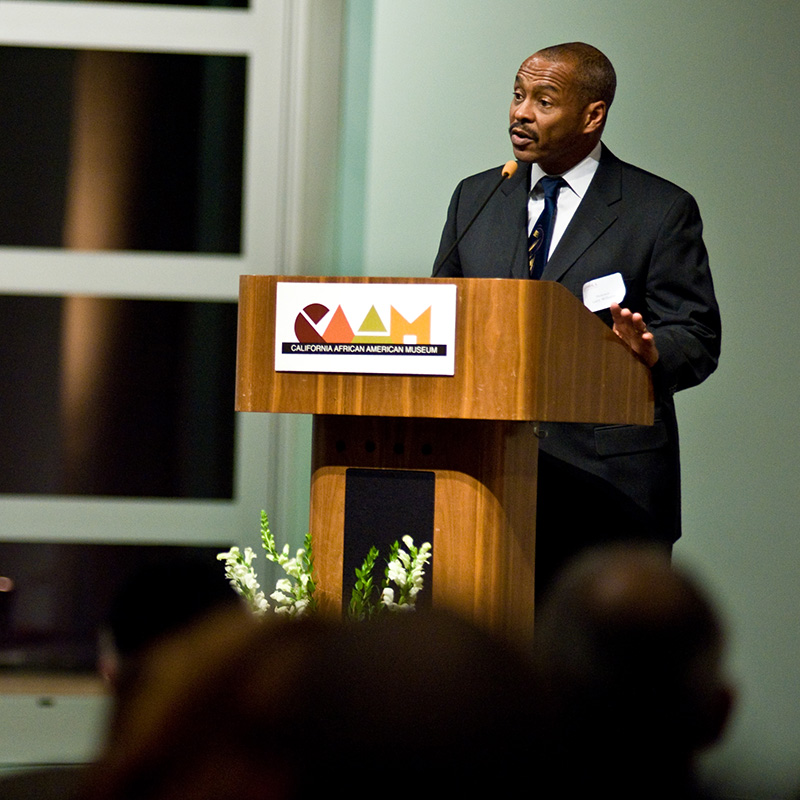Prof. Williams Prepares Future Generations of Public Interest Lawyers

Professor Gary Williams began his career as staff counsel for the Agricultural Labor Relations Board before becoming a staff attorney and assistant legal director for the American Civil Liberties Union Foundation of Southern California. But he saw the impact he could have as a law professor teaching courses that deal with privacy and the First Amendment, ethical lawyering and civil rights, among others.
“I wanted to train the next generation of civil rights activists,” said Williams, Loyola’s Johnnie L. Cochran, Jr. Professor of Civil Rights. “I didn’t think teaching would be a goal of mine, but I love it.”
Civil rights litigation is a passion for Williams, who brings on-the-ground experience to his Civil Rights Litigation Seminar. His teaching emphasizes the importance of fusing legal advocacy with community involvement and public education to create effective strategies for change at the local level. Many graduates of the course are working full-time as public interest advocates.
As a scholar, Williams focuses on social justice and constitutional rights. In a law review introduction to a symposium he organized, “Drum Majors for Justice: Leading the March toward Social Justice,” he writes about the inspiration of Dr. Martin Luther King, Jr., for social-justice advocates: “To bridge the social justice gap, America will need many drum majors for justice.”
The First Amendment makes frequent appearances in Williams’ scholarship. In his law review article, "California's Constitutional Right to Privacy: Can It Protect Private Figures from the Unauthorized Publication of Confidential Medical Information?” Williams writes: “A consistent theme in press freedom jurisprudence generally is a concern that juries will punish the press with damage awards for publicizing unpopular views or attacking popular figures. The lack of clear standards to guide jury deliberations contributes to this concern.”
Williams extends his advocacy impact as a key faculty organizer of the Law School’s Judge Stephen E. O'Neil Young Lawyers Program. Founded by the Black Law Students Association and La Raza de Loyola, the program encourages high school students from low-income communities to pursue higher education. Under the supervision of Williams and other Loyola faculty, Loyola Law School students mentor the high-school advocates in preparation for a mock trial adjudicated by real LA County judges. The program has won myriad awards, including an American Bar Association Diversity Award and California State Bar Education Pipeline Award.
Struck by the impact the program has on high schoolers, Williams notes that the young advocates transform from “not being able to speak publically, to making complex closing arguments and cross examinations quickly. Seeing their growth makes the whole program worthwhile.”
Public service means everything to Williams., and carrying it forward is now an indelible part of his identity. Says Williams: “Teaching and the Young Lawyers Program are essential and critical elements of who I am.”